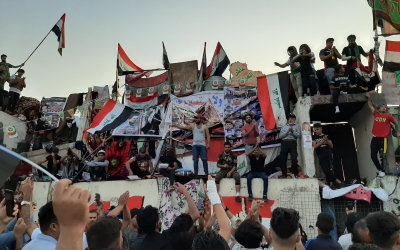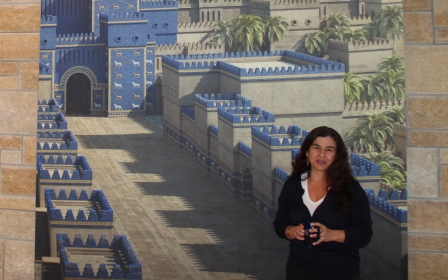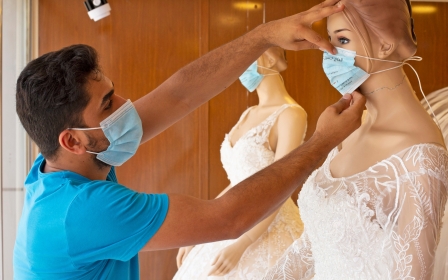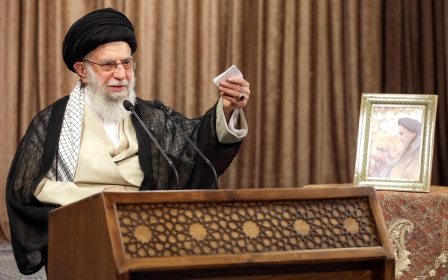Clashes continue in Iraq on first anniversary of anti-government uprisings
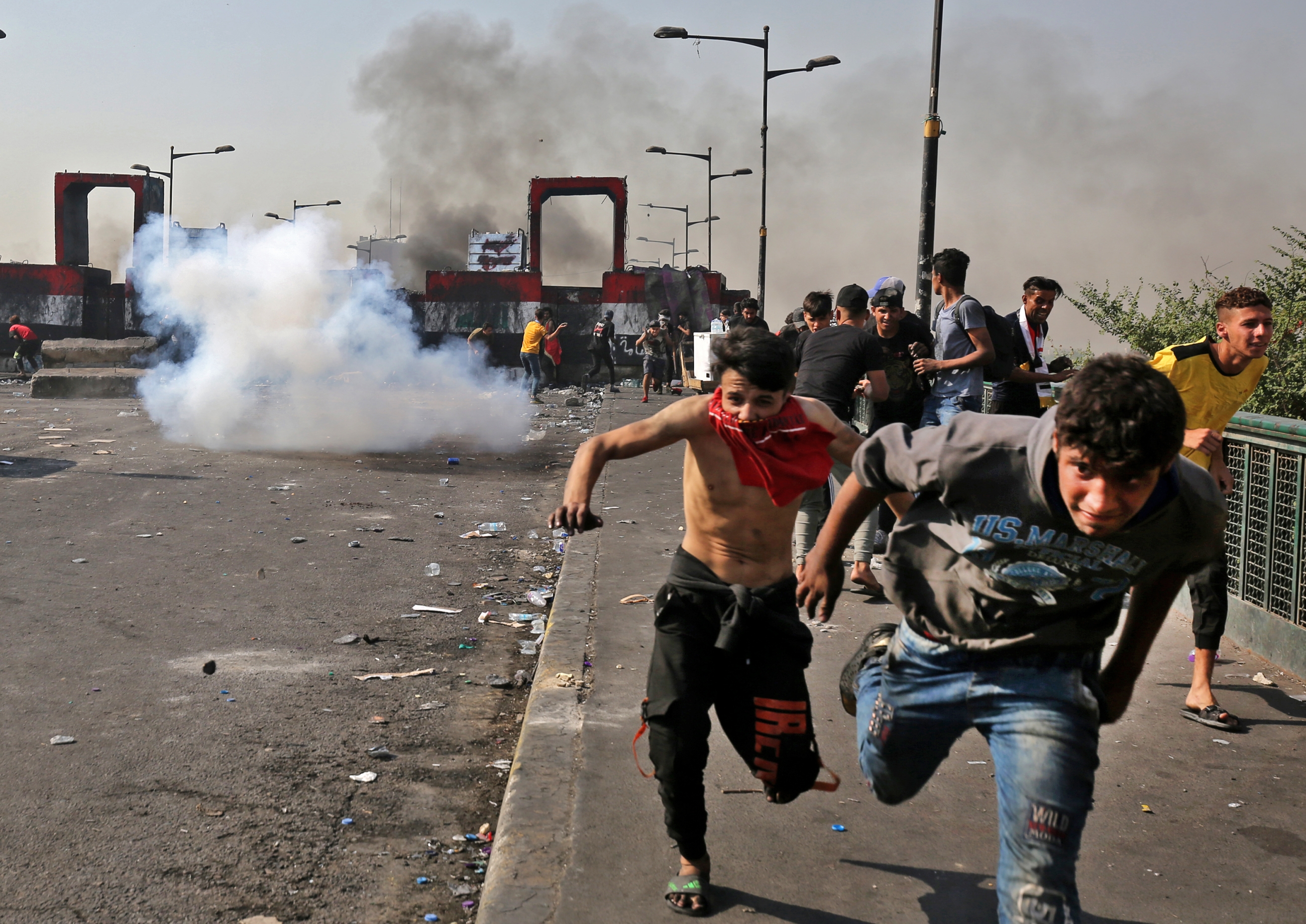
Dozens of Iraqi protesters again clashed with security forces in Baghdad on Monday, as demonstrations continued to mark the first anniversary of major anti-government protests in Iraq.
Police fired stun grenades and tear gas at protesters, who had been burning tyres and hurling rocks on the strategic al-Jumhuriyah bridge across the Tigris River, leading to the highly fortified Green Zone, an AFP photographer reported
New MEE newsletter: Jerusalem Dispatch
Sign up to get the latest insights and analysis on Israel-Palestine, alongside Turkey Unpacked and other MEE newsletters
The bridge, barricaded by high concrete walls, separates the Green Zone from Tahrir Square, the centre of the old and new demonstrations.
The Green Zone, where government offices, parliament and the US embassy are located, is off-limits to ordinary Iraqi citizens.
In a repeat of last year's demonstrations, rallies were also held in Shia-dominated southern towns and cities.
Overnight, in the shrine city of Karbala, which had been a focal point for demonstrations last year, protesters skirmished with riot police, who fired live bullets into the air to disperse them.
In al-Diwaniyah, young demonstrators set car tyes on fire, while in Nasiriyah, also in the south, protesters in the main square sung the national anthem amid celebratory fireworks as night fell.
Restraint urged
Thousands of Iraqis had taken to the streets nationwide on Sunday to mark the first anniversary of the 2019 revolt dubbed the "October Revolution", which demanded the removal of the entire ruling class, accused of ineptitude and corruption.
"We will not stop protesting to demand our stolen rights. We are the victims of corrupted governments," Najim Abdullah, a protester standing near Baghdad's al-Jumhuriyah bridge, told Reuters.
'We will not stop protesting to demand our stolen rights. We are the victims of corrupted governments'
- Najim Abdullah, protester
Though the 2019 protests began on 1 October, the 25th marked the high watermark as they resumed after a short break for the religious festival of Arbaeen.
About 600 protesters had been killed and 30,000 wounded in protest-related violence nationwide, before demonstrations eased off and then ended with the coronavirus pandemic.
Prime Minister Mustafa al-Kadhimi, who has been in power for six months, has urged security forces to show restraint when confronting protesters.
In a televised address on Saturday, he pledged to hold early and fair elections - a demand of many pro-democracy activists - and said that security forces would not harm any peaceful protesters.
Middle East Eye delivers independent and unrivalled coverage and analysis of the Middle East, North Africa and beyond. To learn more about republishing this content and the associated fees, please fill out this form. More about MEE can be found here.


